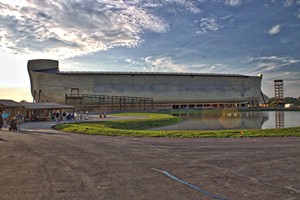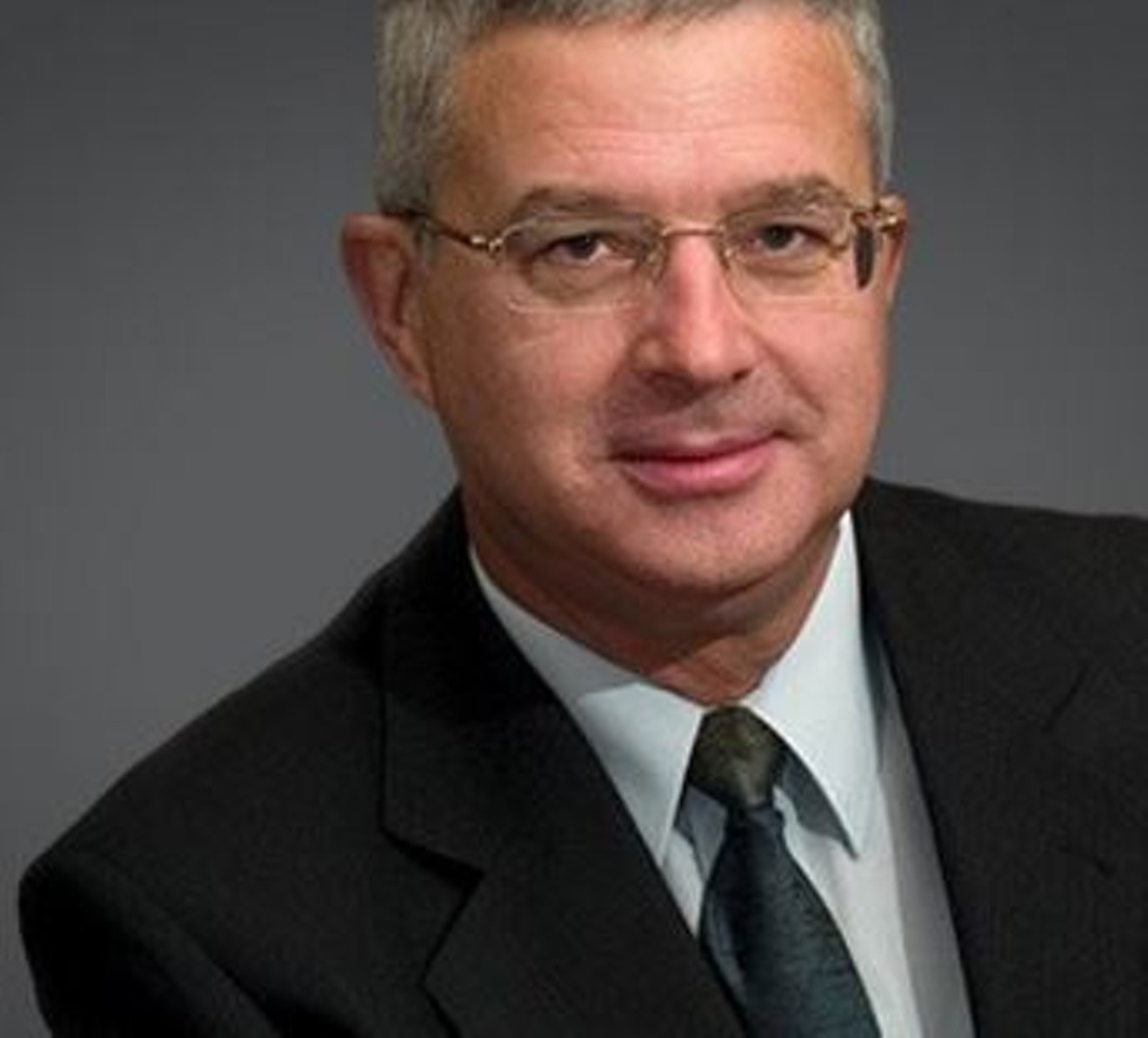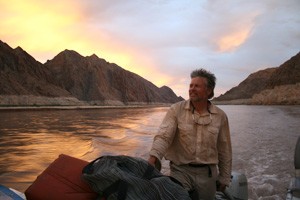National Park Service officials won't let him, denying his 2013 research application following scathing criticisms of his beliefs by several scientists.
Now, the Scottsdale-based Alliance Defending Freedom, a Christian legal-help organization, is suing in federal court on behalf of Snelling, claiming his constitutional rights are being violated.
In the federal complaint filed on Tuesday, ADF uses several key e-mails by scientists who put their feelings in writing to demonstrate the bias Snelling says he encountered.
"It is difficult to review such an outlandish proposal," Ron Blakely of Northern Arizona University told NPS officials in 2014, when he was asked for his opinion about Snelling's proposal.
Gary McCaleb, ADF senior counsel, told Phoenix New Times that Snelling "has been stonewalled for three years. Something's fundamentally wrong when a government stops a good scientist from doing good research."
Whether it's actually "good" research is debatable, of course. But it's unclear why government officials care what Snelling concludes about a relatively small collection of Grand Canyon rocks.
Since 2007, Snelling has worked for Answers in Genesis, a Kentucky-based Christian nonprofit run by its founder and CEO, Ken Ham. Ham is the entrepreneur behind the Ark Encounter, a Christian-science museum and reproduction of Noah's Ark that received wide media attention last year when it opened.
Snelling, who lives in Kentucky, agrees with the official Answers in Genesis position — that Genesis is literally true, right down to the six-day creation and Noah somehow fathering the ancestors of all human beings alive today.
Many Christians, mostly those in the United States, resoundingly reject evolution and the idea that the Bible could be wrong. Polls show that up to 40 percent of Americans believe in a 10,000-year-old Earth, but some researchers say the real number is closer to 15 percent.
Here in Arizona, Snelling has contracted for the last few years with Canyon Ministries, a Flagstaff company that treats Christians to bus tours and rafting trips in Grand Canyon National Park with creationist guides to explain everything. Snelling just finished a rafting tour with clients over the weekend, said Jon Albert, the company's owner.
Snelling also is the editor of AIG's research journal, and has published numerous articles in "peer-reviewed geology journals," according to the federal complaint. He completed three research projects in Grand Canyon in the last two decades "without complaint" from the park.
In November 2013, he sent a letter to Grand Canyon officials asking for permission to collect up to 60 rocks of about .5 pounds each during river trips in April and July 2014.
As the complaint details, Ronda Newton, NPS research permitting coordinator, sent the proposal to Dr. Karl Karlstrom of the University of New Mexico for a review.
Karlstrom made headlines in 2014 with his research showing that much of the Grand Canyon was formed about 6 million years ago, making it much younger than some scientists believe. But he criticized Snelling's beliefs and AIG in a February 10, 2014, letter to the Grand Canyon officials, suggesting that Snelling could use "alternate sites," according to the complaint.
Newton then sent Snelling's proposal to NAU's Blakely, and also to Peter Huntoon, a University of Wyoming geologist who's done research at the Grand Canyon.
Reviewing the rocks would be fine, Huntoon wrote back, "just not processing the dead-end creationist material."
The NPS denied Snelling's request in March 2014, telling him he could find the same kind of rocks elsewhere, but not telling him where. Snelling had already concluded that Grand Canyon's rocks were "unique" and crucial to his research. When he pushed back on the denial, another official warned him that if he collected rocks without a permit, he'd be banned from doing any research in the park, the complaint states.

Snelling is a staunch believer in the Bible-based geological research presented by Answers in Genesis' Ark Encounter, which opened last year in Kentucky.
He also sought the help of Arizona Republican Congressman Trent Franks of Tucson. Franks sent the NPS a fax in March asking the permit to be issued. The NPS never responded to Snelling to Franks, according to the complaint.
ADF wants a court to order NPS to issue Snelling a permit and pay his attorneys' fees and a nominal damage award. ADF claims that the NPS is violating Snelling's First Amendment rights to free speech and religious freedom, his Fifth Amendment rights to due process and equal protection, and the 2000 federal Religious Freedom Restoration Act.
The complaint also makes reference to a May 4, 2017, executive order by President Trump that promises protection of religious freedoms from "undue interference by the federal government."
Snelling told New Times that he wasn't surprised by the reaction of scientists consulted by NPS about his proposal, but he was disappointed as a scientist.
He pointed out that a research project by Karlstrom a few years ago collected numerous basketball-sized rocks from the canyon.
"I don't really expect an apology," he said. "I just expect to have fair treatment. ... They need to be neutral in these world views."
Snelling asserts confidently that his research is valid even if most scientists think it's bogus.
"To say 'no, you can't collect samples,' is really hindering investigation" of Grand Canyon's origin, he said. "By being open, that's how science works."














